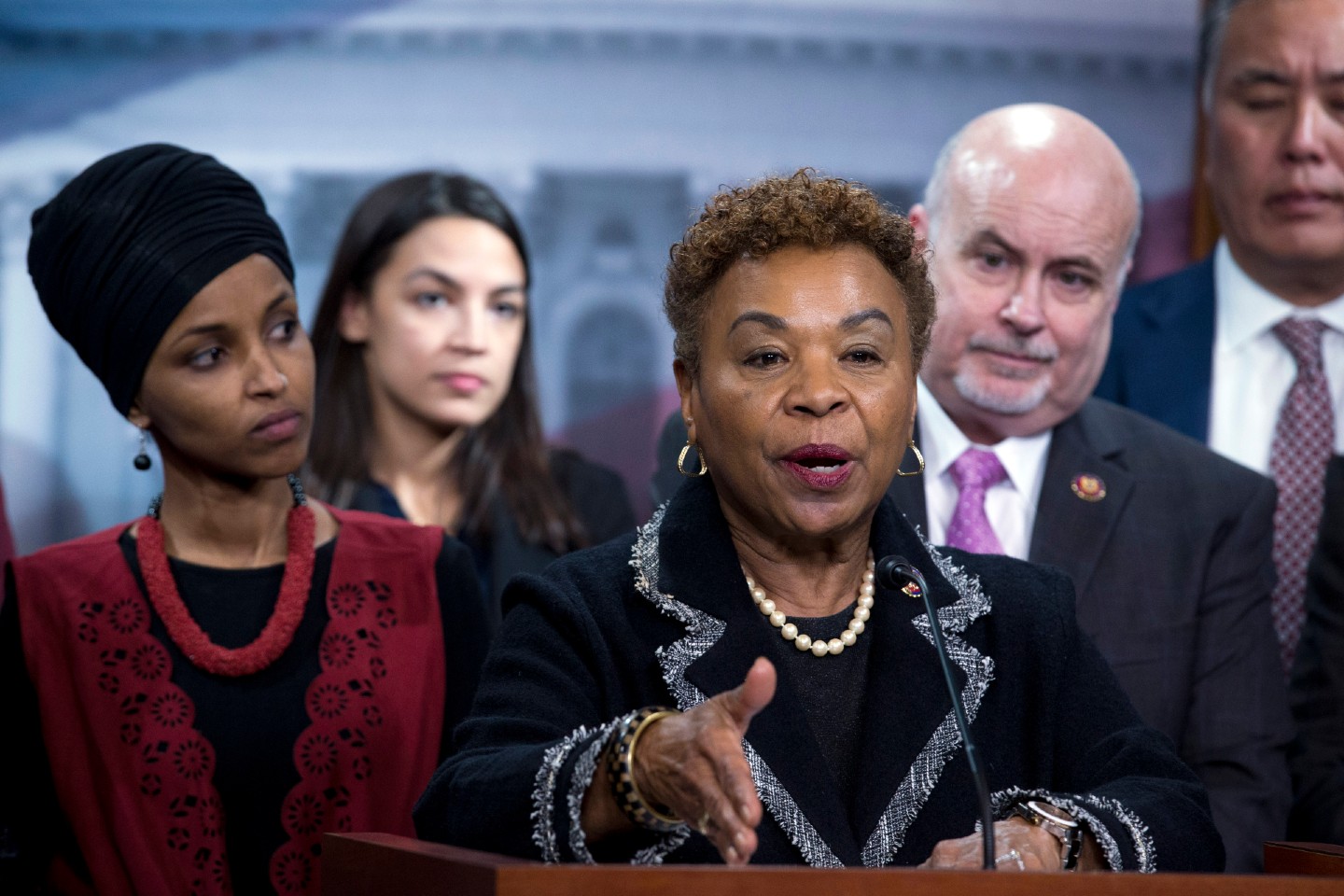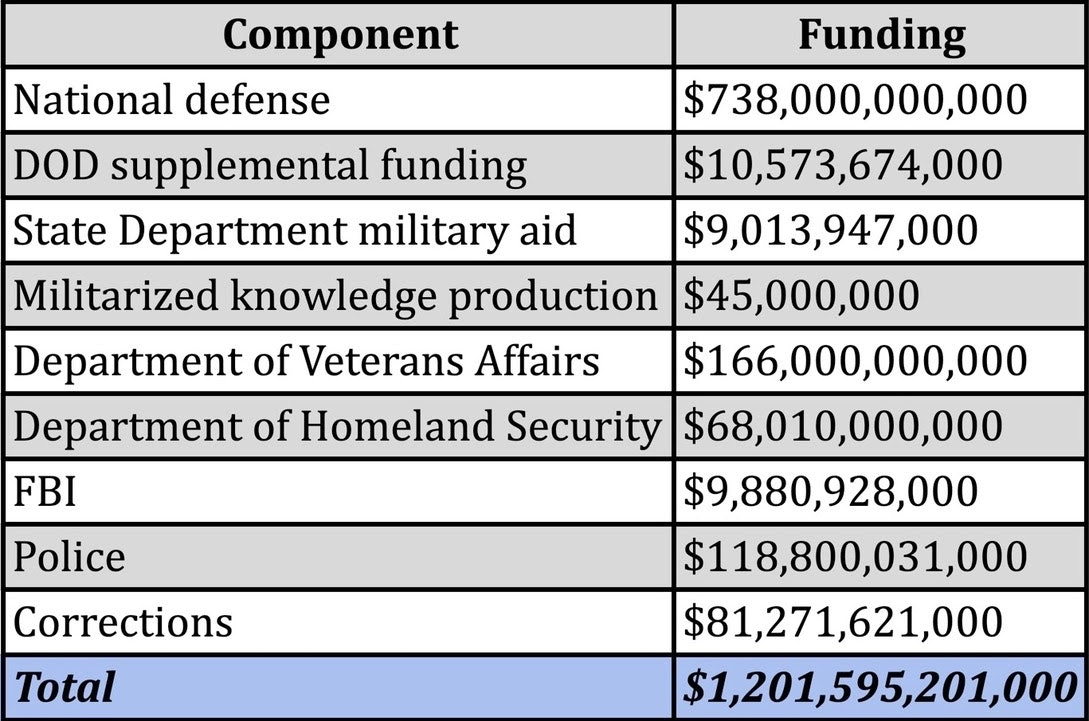
After a year of rich economic aid for large corporations and much-delayed pandemic relief for working people, the annual federal budget process is again chugging to life on Capitol Hill. This week, President Biden will release a preview of his budget request for fiscal year 2022, with top-line numbers on what he would like Congress to approve for defense spending and everything from energy to health to education.
The president’s numbers will inform Congress’ budget resolution, which sets funding levels for discretionary programs like the Departments of Homeland Security and Veterans Affairs. Last year, Congress pushed $740 billion into national security, amounting to half of the $1.485 trillion federal discretionary budget, of which about $705 billion was for the Department of Defense (DoD).
This gargantuan amount is more than the next ten countries spend on their militaries combined, according to the nonprofit National Priorities Project (NPP)—that’s even before taking into account enormous American spending on militarized responses to social issues like immigration and law enforcement. Adjusted for inflation, U.S. military spending is approaching its postwar peak of 2010, when the wars in Afghanistan and Iraq were most heavily-funded, NPP showed in a budget advocacy video this week.
On March 16, progressives called on Biden to “significantly” trim the DoD budget in a letter signed by 50 members of Congress, led by Reps. Barbara Lee (D-Calif.), Mark Pocan (D-Wis.), and Marine veteran Jake Auchincloss (D-Mass.). “As we face a global pandemic and unprecedented economic crisis, the needs of American families far outweigh the need to continue feeding our bloated military defense budget,” said Rep. Lee in a statement. The House members have the backing of Democratic Senators Sanders, Markey, and Warren.
Last July, in the midst of the pandemic, Progressive Caucus members prompted a full House vote on a groundbreaking amendment that would have cut the Pentagon’s budget by 10%—and in the Senate version, reallocated funding to national healthcare, housing, and coronavirus responses. The 139 House Democrats who voted against the cuts received, on average, over three times more in campaign contributions from the defense industry than those voting in favor, by our analysis. While the amendment was defeated in the House by a vote of 324-93, advocates for spending on human and environmental needs over weapons programs considered it a win for real cuts to have received a floor vote. The 93 votes in favor in the House —and 23 on the Senate side—were unprecedented, leading to the formation last year of a Defense Spending Reduction Caucus.
At this key time for reps in considering budget priorities, the advocacy network Win Without War launched a crowdsourced effort to ask members of Congress where they stand on the proposal to reduce the Pentagon budget. Last year, the majority of Democrats in both chambers sided with Republicans in rejecting the proposed cuts, passing the $740 billion Pentagon budget.
“With the Biden budget expected to call for flat Pentagon funding, progressives need to let Congress know that this isn’t good enough,” Lindsay Koshgarian, program director for the National Priorities Project, told Sludge. “The Pentagon has more than enough room for significant cuts. And we desperately need to stop throwing money at the Pentagon that we should be spending on infrastructure, the climate crisis, health care, and so many other critical needs.”
Gaurav Madan, senior campaigner at Friends of the Earth, said in a statement, “If this Administration is serious about prioritizing people and the planet, it must substantially reduce military spending and invest in a just transition for workers and communities, including those on the frontlines of the climate crisis.”
The hawkish chair of the House Armed Services Committee, Rep. Adam Smith of Washington, voted against the cuts last summer and took more donations from defense industry PACs than any other sector last cycle. Of the 27 Democratic members who still sit on the committee, which authorizes further defense appropriations bills, only three voted for the amendment last year: Reps. Ro Khanna and Jackie Speier of California, and William Keating of Massachusetts. Newly-elevated committee vice chair Rep. Elaine Luria of Virginia broke a prior campaign pledge and quietly accepted contributions from major defense contractors to retire her re-election campaign debt last December, ducking questions from reporters on her sudden change in ethics policy. Last month, the top official in the U.S. Air Force attempted to clarify comments he had recently made about the Pentagon’s most expensive weapons program in history, the dysfunctional F-35 fighter jet, possibly not being needed in quantities as had been planned—potentially making it a multi-trillion-dollar flop.
Longtime defense analyst William Hartung of the nonprofit think tank Center for International Policy wrote this month, “if President Biden is serious about his pledge to end endless wars, he should instruct the Pentagon to reduce the size of the armed forces – by 10% or more to start — and scale back U.S. overseas troop deployments, including closing significant numbers of America’s 800 military bases.”
By the calculation of defense policy analyst Stephen Semler, the national security budget totaled over $1.2 trillion last year—worsening inequality, exacerbating climate degradation, and sinking public money into less economically-productive military spending than education and health programs.

If 10% of the Pentagon’s annual $740 billion were reallocated, NPP wrote last summer, it could go toward uses like generating enough renewable energy for every American household or 1 million well-paid infrastructure jobs in hard-hit areas, to pick a couple. Through last year, some $6.4 trillion had been spent on post-9/11 wars, the Watson Institute at Brown University found.
In May 2019, the People Over Pentagon campaign and the Project On Government Oversight outlined $200 billion in annual budget cuts achievable without undermining national security. More statements from members of Congress in favor of the House’s Pocan-Lee-Jayapal amendment, including Senate Majority Leader Chuck Schumer as of last year’s push, can be seen here on Win Without War’s tracker.
